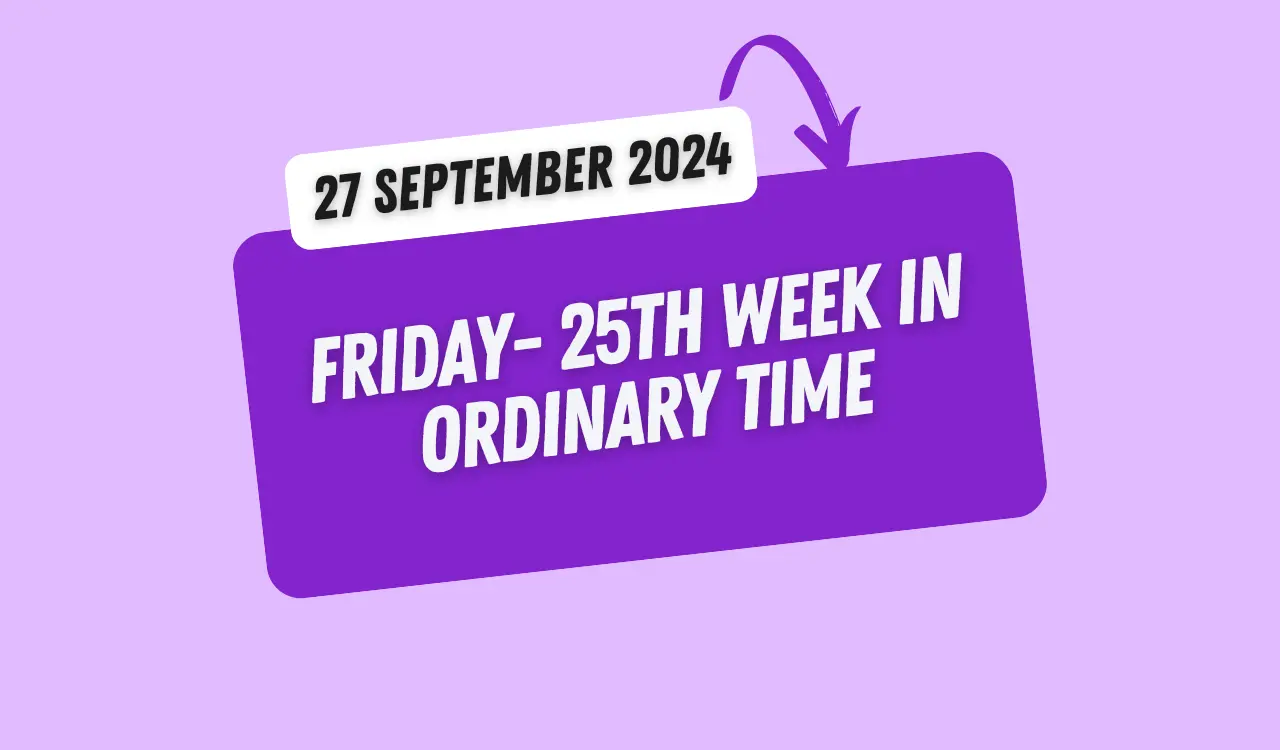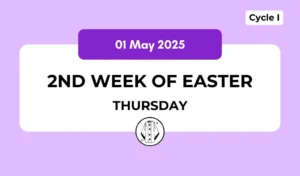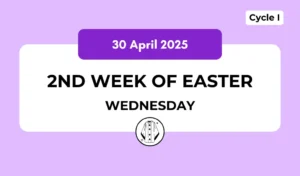Catholic Mass Readings and Reflection September 27, 2024
Twenty-Fifth Week of Ordinary Time
27th September 2024 (Friday)
Psalter: Week 1
Readings of the Day
First Reading: Ecclesiastes 3:1-11
For everything there is a season, and a time for every matter under heaven: a time to be born, and a time to die; a time to plant, and a time to pluck up what is planted; a time to kill, and a time to heal; a time to break down, and a time to build up; a time to weep, and a time to laugh; a time to mourn, and a time to dance; a time to cast away stones, and a time to gather stones together; a time to embrace, and a time to refrain from embracing; a time to seek, and a time to lose; a time to keep, and a time to cast away; a time to tear, and a time to sew; a time to keep silence, and a time to speak; a time to love, and a time to hate; a time for war, and a time for peace. What gain has the worker from his toil? I have seen the business that God has given to the children of man to be busy with. He has made everything beautiful in its time. Also, he has put eternity into man’s heart, yet so that he cannot find out what God has done from the beginning to the end.
Psalm 144:1a and 2abc, 3-4 (R. 1a)
R/. Blest be the Lord, my rock.
Gospel Acclamation
V/. Alleluia
R/. Alleluia
V/. The Son of Man came not to be served but to serve, and to give his life as a ransom for many
R/. Alleluia.
Gospel: Luke 9:18-22
Now it happened that as Jesus was praying alone, the disciples were with him. And he asked them, “Who do the crowds say that I am?” And they answered, “John the Baptist. But others say, Elijah, and others, that one of the prophets of old has risen.” Then he said to them, “But who do you say that I am?” And Peter answered, “The Christ of God.” And he strictly charged and commanded them to tell this to no one, saying, “The Son of Man must suffer many things and be rejected by the elders and chief priests and scribes, and be killed, and on the third day be raised.”
Daily Gospel Reflection
Friday – Twenty-Fifth Week of Ordinary Time
Guidelines: This life is the God-given time to know him, love him and serve him. When people do not realize the value and the purpose of the given time, they will fail in living it meaningfully
1. In the gospel, Jesus asks his disciples two questions: “Who do people say I am?” and “Who do you say I am?” Both these questions at the first look are matters of self-knowledge.
2. He wanted to know what others thought of him. Some also think of these two as Jesus’ way for his self-revelation to his disciples. He wanted them to know who he is. He wanted to reveal himself to them.
3. We need not rule out these two aspects of self-knowledge to ourselves and self-revelation to others. But we shall not stop there. There are more fundamentals to know and experience and live and promote. A personal experience of God is the most essential in life.
4. Jesus was not satisfied with knowing what the people say of him. He would also not be satisfied that his disciples know only what the people say of him. It is good to know what others think or say or experience of the Lord. But ultimately, what matters the most is what each disciple personally thinks, says and does of Jesus.
5. That is why Jesus poses the personal question to his disciples, “But who do you say that I am?” We can know about Jesus in very many ways. They are important and we need them. But nothing of these can substitute or undervalue the unique importance of a personal knowledge and experience of the Lord.
6. Knowledge and experience must go together. Only then, a person changes and life changes. Often, in the case of many, there is enormous knowledge about the Lord. We see many teachers, preachers, professors, writers, scholars and Bible readers and learners who learn and know so much about the Lord. But the whole point is, whether this search for and pursuit of knowledge help for a profound personal experience of the Lord.
7. Knowledge without experience becomes shallow and unproductive. It will not touch, affect and change the person. There are many who know so much about God but are least impressed and inspired by it to live according to God’s will.
8. A knowledge soaked in experience would place our life in the right perspective. Such an experiential knowledge would make us realize we need to understand the very nature of life. “Propriety and appropriateness of time” is an essential property of life. As the first reading from Ecclesiastes teaches us, “there is a time for everything”.
9. This will teach us to be realistic and accept life as a mix of divergent happenings and experiences. In life, everything is timed, everything has its own time-slot, and has its importance in the one chart of timeliness. This realism will also make us more patient and balanced amidst both the positive and negative, the favourable and the unfavourable.
10. This applies also to the ‘timing’ of his suffering and death of Jesus. The disciples did not understand that every opposition and suffering as well as praise and glory in Jesus’ life had its own specific time.
11. The disciples failed to understand this sequence of time that suffering precedes glory. They wanted to bypass the way of the cross and arrive directly at the point of resurrection. They wanted to anticipate the glorious glory before completing the battle itself.
Practice: Blessed are we to know the Lord, experience him and bear witness to him through the different times in life! We will do well to ensure our knowledge becomes experience and change







